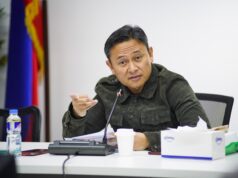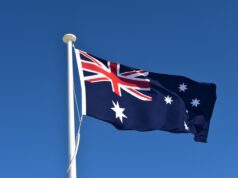Private sector ready to buy more vaccines but no supply readily available — Concepcion
PRESIDENTIAL ADVISER for Entrepreneurship Joey A. Concepcion said the private sector is ready to buy more coronavirus vaccines but supply is not readily available at this time.
“We’d love to do it, but no pharmaceutical company will be able to sell (to) you, especially today because there’s just a shortage of supply at this current time,” he said at the Kapihan sa Manila Bay event on Wednesday.
“I think the structure of the tripartite is the right structure and it should continue,” Mr. Concepcion said.
President Rodrigo R. Duterte, in a televised address on Monday, said he would allow the private sector to import “at will.”
However, Secretary Carlito G. Galvez, Jr. who is heading the government’s vaccination program, on Tuesday clarified that private companies will still have to make their purchases through a contract with the manufacturer that involves the government.
Presidential Spokesman Herminio L. Roque, Jr. also said on Tuesday that all authorized coronavirus vaccines in the country are under emergency use and not for commercial distribution. As such, companies must import vaccines under a tripartite deal because the state would shoulder the liability in case people get sick from the vaccines.
Mr. Concepcion leads the Dose of Hope initiative, which helped procure 17 million doses of the AstraZeneca COVID-19 vaccine through tripartite agreements with the private sector and local governments. Among the doses bought by businesses, half would go to their employees and half would be donated to the government.
To speed up the inoculation process, the Philippine Chamber of Commerce and Industry had asked the government to allow the private sector to directly buy vaccines without restrictions and conditions.
Mr. Concepcion said that the structure of the tripartite agreements should continue to be used.
“We have a good model now for private sector to be part of the whole program of bringing vaccines together and it gives pharmaceutical companies a level of comfort.”
Mr. Concepcion recently said the private sector has requested to channel its donations of AstraZeneca doses to smaller businesses in Metro Manila.
WORKERS
Meanwhile, the country’s largest labor coalition pushed for the mass vaccination of workers, citing the strategy taken by Indonesia of prioritizing the workforce to boost economic activities.
The Trade Union Congress of the Philippines (TUCP), in a statement on Wednesday, said the government’s task force handling the coronavirus response should look into other Asian countries’ vaccination programs.
“All workers, not just some, are really the most exposed sector to possible infection. Workers have to go to the streets, take public transportation, go to their respective factories, offices, malls and plantations and in the process of coming-and-going possibly become infected and become superspreaders,” said TUCP President Raymond C. Mendoza.
TUCP said the government should shoulder the vaccination cost for the majority of the country’s establishments which are micro, small, and medium enterprises while large-scale companies can cover their employees.
“This kind of multi-sectoral approach involving government, doctors and scientists, business and labor is needed both for our health and the economy,” he said.
The government’s vaccination program has medical frontliners and senior citizens as top priorities.
The government aims to vaccinate up to 70 million Filipinos this year. — Jenina P. Ibañez and Gillian M. Cortez



